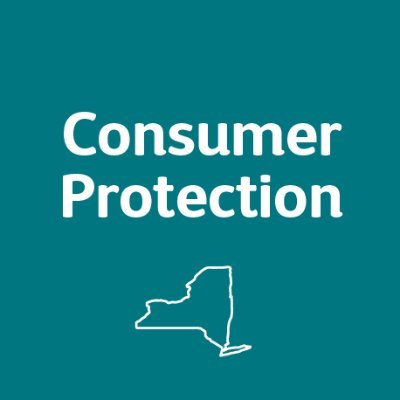The New York State Department of State’s Division of Consumer Protection (DCP) aims to raise awareness about charity scams. Donations of any kind can make a real impact on a good cause, which is why charity scams are especially cruel. Unfortunately, scammers never miss an opportunity to defraud people, so it’s important to remember that not all donation requests are legitimate. DCP has created this quick guide to help donors do their own due diligence on the charities seeking their support.
Charity scams can happen at any time, but they are more prevalent after a natural disaster or emergencies collecting millions of dollars from unsuspecting donors. On many occasions, these fraudsters pretend to be affiliated with well-known organizations or even the government to scam people out of their hard-earned money. According to the Federal Trade Commission, about 2.8 million people nationwide reported being victims of someone pretending to be a trusted charity source in 2021, causing loses of about $2.3 billion.
To prevent your donation money from falling into the wrong hands, DCP recommends taking the following precautions:
- Check the legitimacy of the charitable organization. Research the charity by searching the New York State Attorney General’s online database of registered charities at charitiesnys.com, and by visiting websites such as bbb.org, give.org and guidestar.org in addition to visiting the charity’s website. If donating toward relief efforts after a natural disaster, check a site like disasterphilanthropy.org to be sure your money is going to truly help those in need.
- Learn how to detect a phony charity. Some scammers will create fake “charities” and try to trick you with similar names of well-known charities. Pay attention to the charity’s name, web address, logos, etc.
- Designate your donation. Find out what percentage of your donation will go directly toward the cause as opposed to administrative costs. Ask the charity whether you can designate your donation to a specific effort rather than a general contribution fund.
- Pay attention to vague claims. Pay attention to language such as “all proceeds go to charity.” A disclosure should be provided that includes the actual or estimated purchase price amount the charity will receive directly.
- Resist high-pressure tactics. Charity fraud scams can come in many forms, whether by email, social media, crowdfunding platforms, cold calls, etc. Watch out for direct e-mails from “victims” and solicitors who employ heart-wrenching stories, insisting that you donate immediately. It is strongly advised not to give money over the phone to unsolicited telemarketers, and instead ask the caller to send written materials about the charity.
- Find out who’s behind the crowdfunding request. Online platforms like GoFundMe make it easy for people to create crowdfunding campaigns. To protect yourself, remember to give to people you know directly.
- Do not disclose personal or financial information to unsolicited requests. Never give your Social Security number, credit card or debit card number or other personal identifying information in response to an unsolicited charitable request.
- Avoid giving cash. Give your contribution by check or credit card to ensure that you have a record of the donation. Make checks out to the charity, not to an individual. If you choose to make a donation via a charity’s website, check that the website is secure and that your computer is equipped with the latest anti-virus protection.
Courtesy of Division of Consumer Protection

